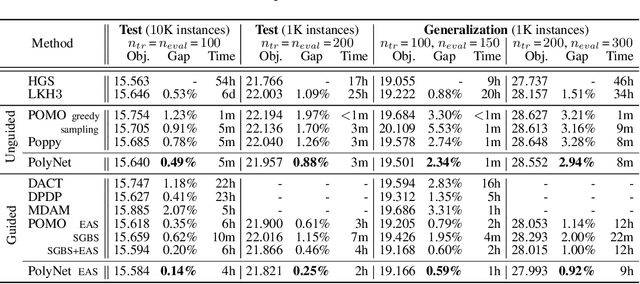PolyNet: Learning Diverse Solution Strategies for Neural Combinatorial Optimization
Paper and Code
Feb 21, 2024



Reinforcement learning-based methods for constructing solutions to combinatorial optimization problems are rapidly approaching the performance of human-designed algorithms. To further narrow the gap, learning-based approaches must efficiently explore the solution space during the search process. Recent approaches artificially increase exploration by enforcing diverse solution generation through handcrafted rules, however, these rules can impair solution quality and are difficult to design for more complex problems. In this paper, we introduce PolyNet, an approach for improving exploration of the solution space by learning complementary solution strategies. In contrast to other works, PolyNet uses only a single-decoder and a training schema that does not enforce diverse solution generation through handcrafted rules. We evaluate PolyNet on four combinatorial optimization problems and observe that the implicit diversity mechanism allows PolyNet to find better solutions than approaches the explicitly enforce diverse solution generation.
 Add to Chrome
Add to Chrome Add to Firefox
Add to Firefox Add to Edge
Add to Edge